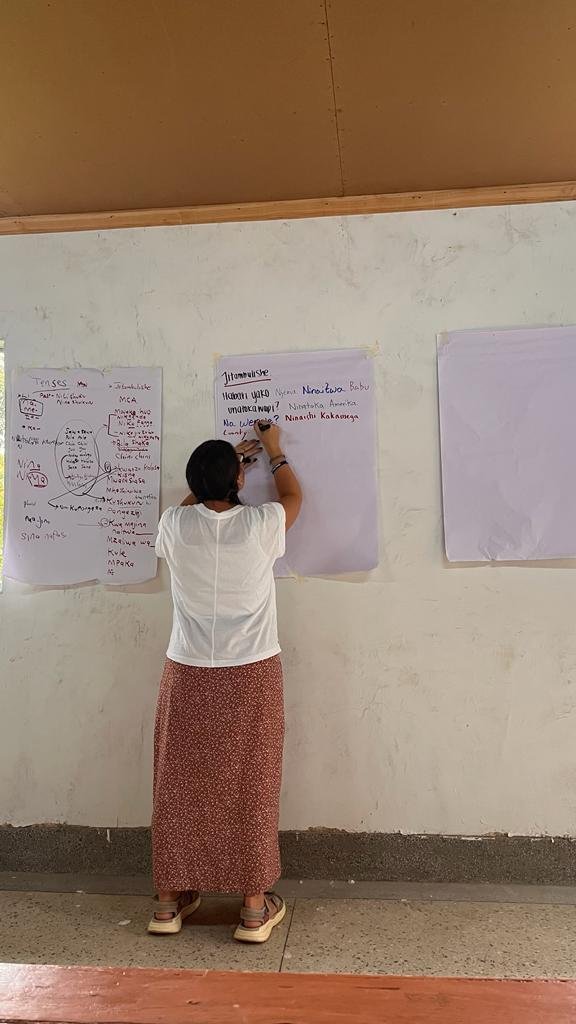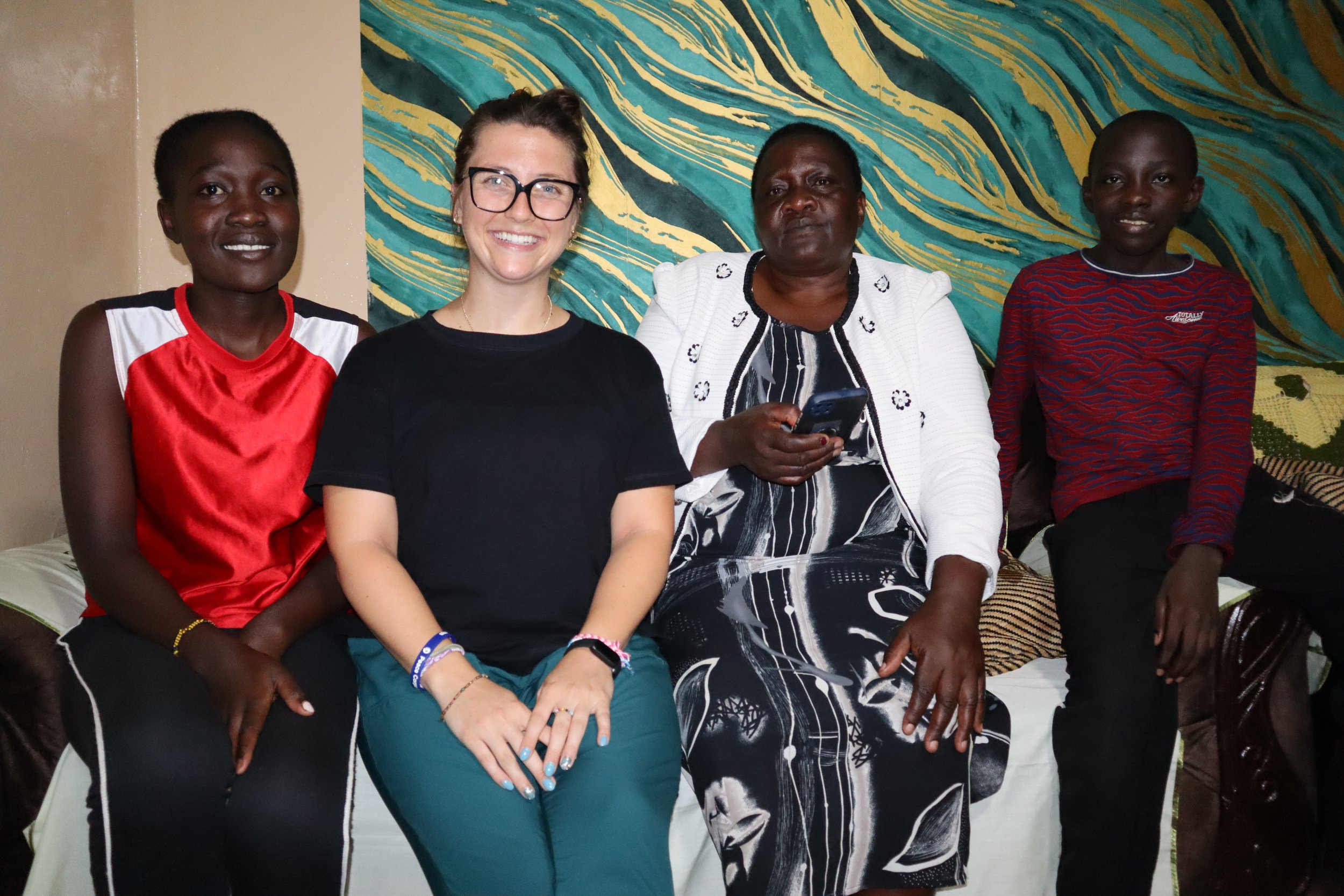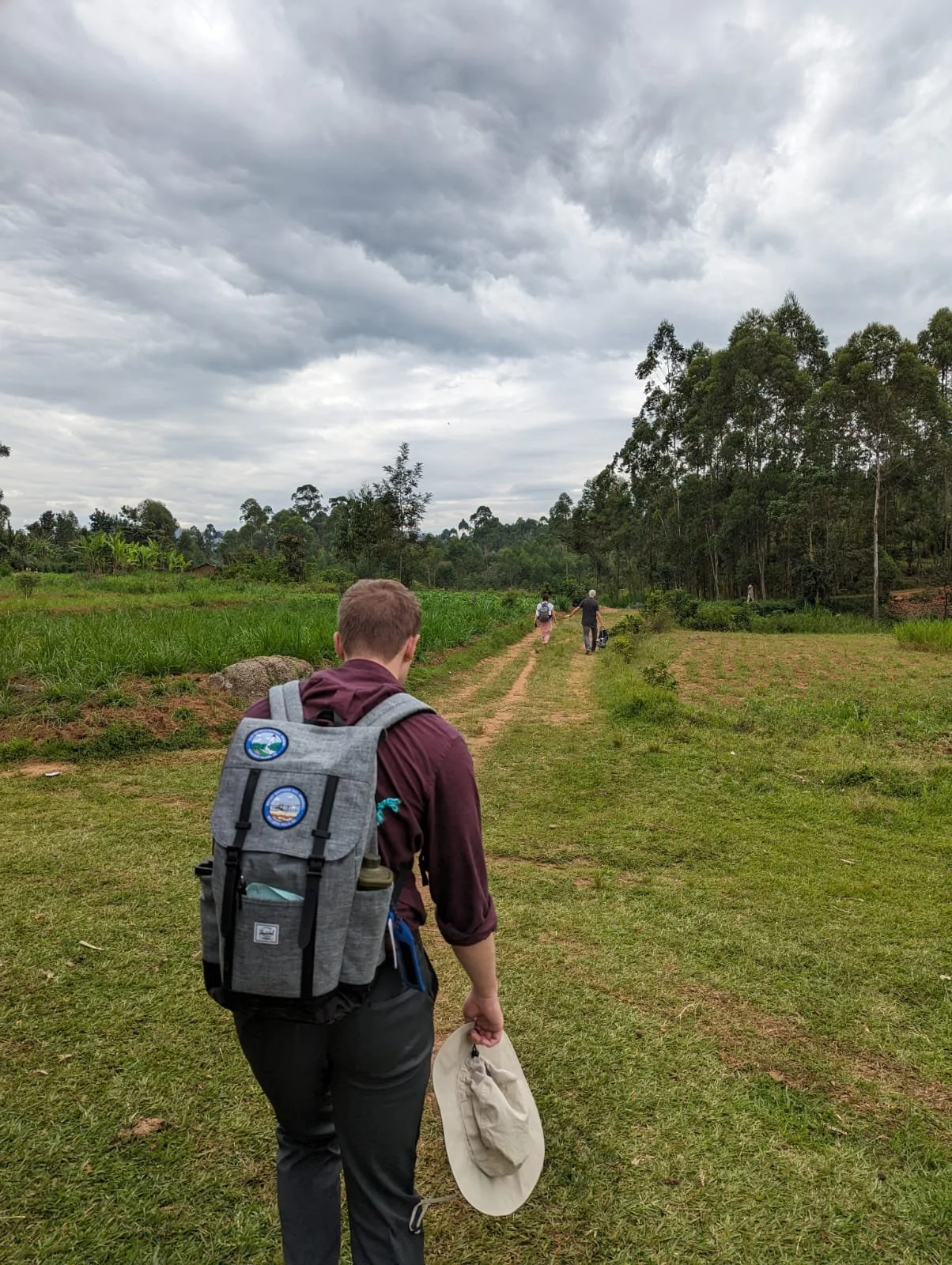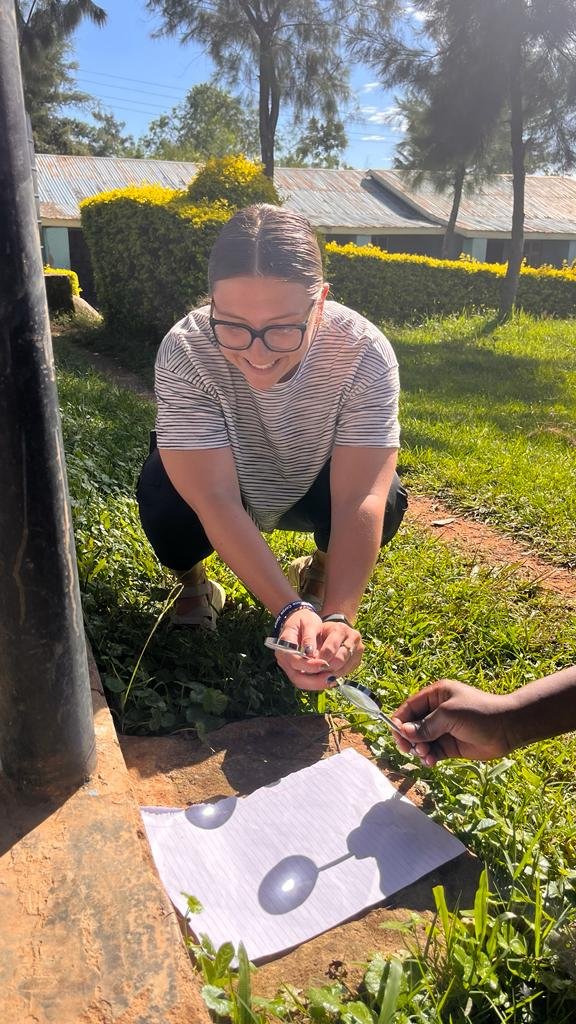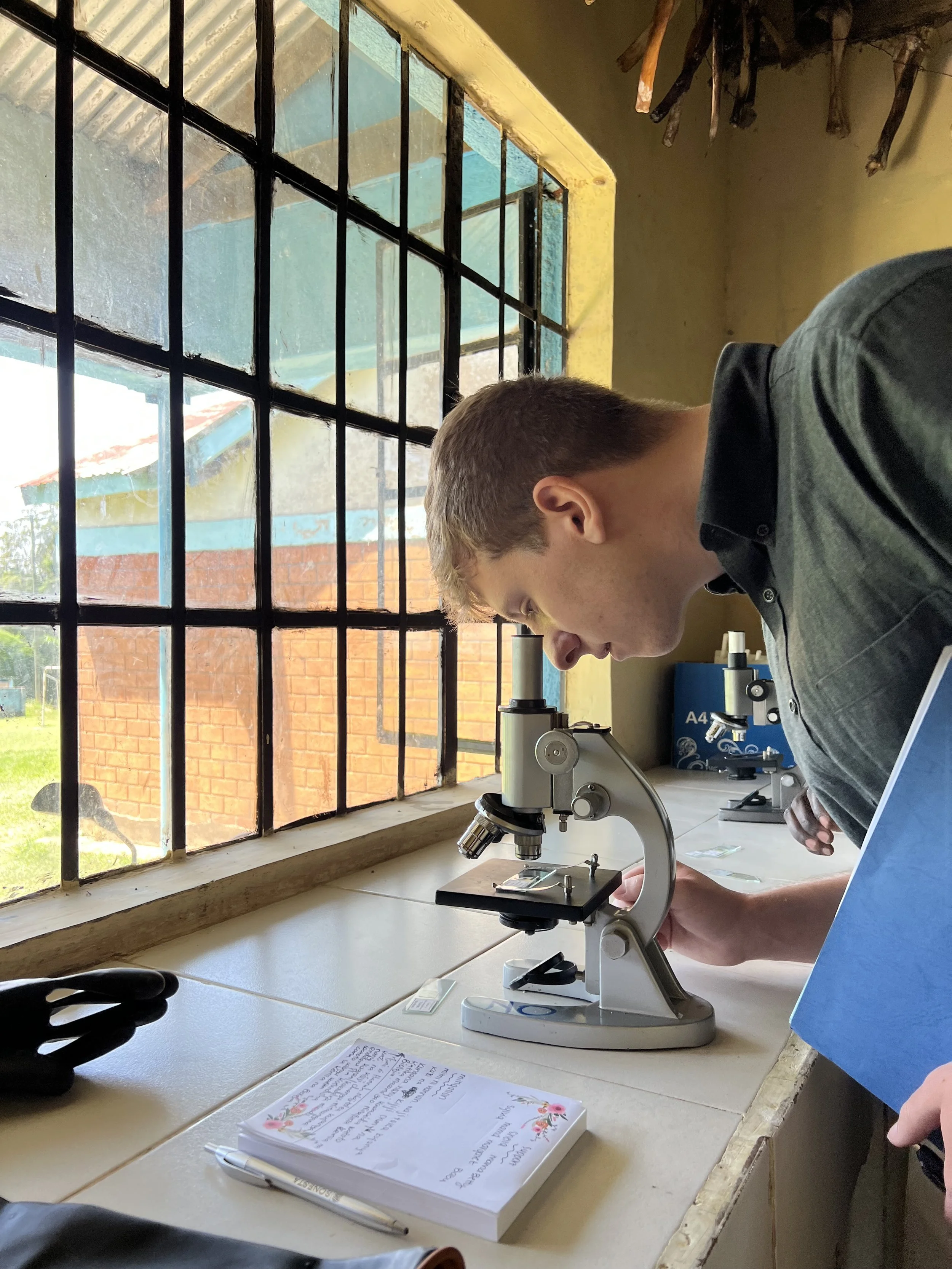Kenya: Week 2 Pre-Service Training
During week 2 of pre-service training, I stayed with my host family (who I will be staying with until mid-December), met staff at the school I am training at, learned a lot of new words/phrases in Kiswahili, and learned/relearned how to do household and community tasks.
Host Family
I might be a little biased, but my host family is the best 😊 Mama Margaret is the typical Kenyan mama in all the best ways. She insists on three meals a day in addition to as many chai (tea) breaks as can fit in the day. I have to be the one to serve myself when it is time to eat because if Mama Margaret had it her way, I’d be as big as the ngombe (cow) in our yard. She is definitely the voice of reason and authority in the house and I wouldn’t have it any other way. I love how patient and understanding she is with me as I am going through so many culture changes. We have ramen (known as spaghetti in the house) that is my backup meal in case we make something that is a bit too adventurous for me. We also limit how many new things I do in a day, but we are making great progress compared to the Kenyan household skills I arrived with (zero). Mama Margaret has the most beautiful dresses and she has promised to take me to her shops so I can have one made before I leave her. She also has many friends, most of them neighbors, and I have felt so welcome by all of them from the day I arrived.
My best friend in my host family is my sister Sheilla. I love this girl and she is truly a saint for helping me adjust and for answering all of my questions. Sheilla is a social worker in Kisumu and she took a two week break just to help me move in and get adjusted (I told you, a saint). She is extremely intelligent, funny, and compassionate, and the best person for me to be myself around. I am going to be so sad when she leaves me at the end of my first two weeks at the house, but we will be visiting each other every chance we get. She is my go-to girl for anything and everything. How do I flush the toilet? Where do I buy this/that? How do I say this? What does it mean if someone said this to me? You get the picture; she is answering all the questions I have. She also helps me with my household culture training and I’ll talk about all the skills I’ve learned later in this post. I truly enjoy being around Sheilla and I make sure my fellow Peace Corps Trainees know how awesome she is (she is famous in our group 😊). I hope she knows how many messages she will continue to receive from me even when she goes back to the city. Love ya sista!
The final member in our house is Dan, my younger brother. He is in primary school and spends almost every waking minute studying for his exam that is about two weeks away (I’ll explain more of the school set-up in Kenya further below in this post). You may think I am exaggerating, but students here go to school from 6:30 AM – 6:00 PM and then I watch him study until he goes to bed. I truly don’t know how he is so studious and I need some of his dedication to rub off on me so I can learn Kiswahili quicker. He had his birthday this week and I was able to make him a knotted bracelet for the occasion. My family members were also able to send in videos of themselves singing happy birthday to him and that was one of my favorite moments this week.
I said final member, but I guess I meant final human member in the house because I can’t forget our animals. We have two cows, a mama and a baby. I don’t think they have names because I know that would’ve been my first question about the cows and no names are popping up in my head when I think of them, so I think they’re nameless. The mom is pregnant and due in February. If it is born on my birthday, I told them they have to name the calf after me. It’s always fun when I come home because you can’t see what’s behind the gate until you open it and sometimes you have to be very quick to get in because the cows get excited when the door opens and they want to run out. The cow did escape one time but it ended up in the yard next door eating their grass (I guess sometimes the grass is greener on the other side lol). In addition to the two cows, we have a lot of chickens and at least one rooster. We definitely ate one of them this week, so we are down one chicken since I arrived. We also have a cat that I affectionately named “Penguin”. Penguin is black and white and sits on its hind legs when it is begging for food and looks like a penguin. It likes my room, so I have to check to make sure it isn’t in my room before I close my door for the night.
All in all, we seem to be working very well as a family and I hope they are having as much fun being around me as I am being around them.
Teacher Training
Having taught for three years at a public high school in Georgia, Kenyan pedagogy and the Kenyan school system has been very interesting for me to learn (and there’s always something new I continue to learn every day). The school I am completing my training at is a secondary school that is about a 30-minute walk from my host home. The walk is very nice and I complete it every morning at 7:30 with three other Peace Corps Trainees (PCTs) (Andy, Lucas, & Sophie) and our Language & Culture Facilitator (LCF) (Babu).
School Details
Motto: Strive to Excel
Vision: To become a center of excellence in academics, sports, and other related disciplines.
Mission: To provide quality education to students so as to equip them with knowledge, practical skills, and moral values necessary to the community, nation, and world as a whole.
Core Values: Respect * Team Work * Honesty * Discipline * Reliability
Daily Schedule:
6:30 Arrival * 7:00-7:40 Preps & Morning Teaching *7:40-8:00 Assembly * 8:00-8:40 1st Lesson * 8:40-9:202nd Lesson * 9:20-10:00 3rd Lesson * 10:00-10:20 Long Break * 10:20-11:00 4th Lesson * 11:00-11:40 5th Lesson * 11:40-11:50 Short Break * 11:50-12:30 6th Lesson * 12:30-1:10 7th Lesson * 1:10-1:30 Lunch * 1:30-2:00Preps * 2:00-2:40 8th Lesson * 2:40-3:20 9th Lesson * 3:20-4:00 10th Lesson * 4:00-5:00 Games, Clubs, & Christian Union * 5:00-6:00 Preps
Did you notice that there isn’t transition time planned into the schedule above? This is because students do not move from classroom to classroom depending on their teacher. Instead, there is one room for each form level and teachers move in and out of this room depending on what subject and what form level they are teaching during a specific lesson slot.
Yearly Schedule:
Term 1 is 14/15 Weeks (January – April) * Term 2 is 14 Weeks (May – August) * Term 3 is 9/10 Weeks (September – November)
Classes:
Students are in school for all 10 lessons in addition to the required activities before the 1st Lesson and after the 10th Lesson. Prep lessons are intended to provide structured study sessions for students that are taking a national exam at the end of the term or the year. These exams are taken very seriously. Remedial lessons often take place before the 1st Lesson and after the 10th Lesson. While it sounds optional, these are not. These remedial lessons can be used to move ahead in the syllabus, take assessments so class time is not taken up, make up for lost time (for things such as a holiday or bad weather), and student revision/review. Within the 10 lessons students take in a day, many are required, and some are available for students to choose which class they want to take. An example of an optional class at my school is agriculture. Some required classes include biology, chemistry, English, and Kiswahili. A student will not take every class every day. From what I am understanding, classes typically follow a 40-minute, 40-minute, 80-minute schedule. This means, students will only have a certain class three days out of the week. The 80-minute class could be separated into 2 40-minute classes and then students would have that class 4 days that week. Classes are not one and done as is the case with most classes at home. This means students take the required topic in each form (grade level). The difference lies in the details that are covered each year. This would be similar to a student taking an honors class their freshman year and then taking the AP class of the same topic the next year. The difference is that this move is a choice at home whereas here, taking the next advanced class is a requirement for many disciplines.
Grades:
Students can get any of the following grades in a class: A, B, C, D, E, F. In the United States, we didn’t use the letter grade E at my school. Also, passing a class here is classified as having a 50 which is a C, C+, or C- depending on the class or school. Grades are also fixed. This means there is no extra credit, no chance to retake, etc. At home, we also had summative (exams, papers) and formative grades (quizzes, homework). Here, the only things that go in the mark book are summative assessments. Even though formative assessments are consistently given and corrected, they are not put in the mark book.
Instead of students being in grades 9, 10, 11, and 12, students are in Form 1, Form 2, Form 3, and Form 4.
Teacher Schedule:
Each teacher teaches four lessons a day and has the rest of the time to plan, co-plan, grade, and collaborate. They do not need to organize lessons for a sub. Instead, teachers keep their lesson plans/notes/records of work on their desk. If they call in sick, another teacher looks at what was covered the day before and teaches the next lesson in the sequence of the scheme of work. One of the coolest things to me about this school is that there is a lab technician who works with the teachers to prepare chemicals and materials for labs that the teacher wants to do. In my previous teaching job, I would sometimes spend days of my planning period preparing for a lab. Now, not only do I have significantly more planning time in my day, there’s also someone there helping to organize labs. All I need to do is present them with a material list and the procedure (I will be doing so many labs now because of this).
Lunch & Uniforms:
Lunch is cooked at the school and provided to the students and to the staff. I am a little unclear on if it is required for students to eat the school lunch or not, but I believe it is. This is to prevent one student from coming in with a large spread of food for their lunch and another student bringing nothing for their lunch. Uniforms are also required for this same reason, to ensure students are not judged for what they wear to school.
Teacher Resources:
syllabus * scheme of work * student textbook * teacher textbook * work covered – record of work * lesson plan * progressive record/mark book * teacher notes * teaching aids * laboratory & lab technician
Things I am Still Learning:
I am still learning a lot, so there are still things that I don’t fully understand. I am working at a public school and the schools around my host home are also public schools. However, students have to pay school fees that cover a variety of things depending on the school: lunch, books, chairs, tables, etc. If a student comes to school and they have not paid their school fees, they are sent home. This week was a week in which school fees were due and there were many students absent from school on Monday because of this. School attendance increased throughout the week as school fees were turned in. I think it is difficult for me to understand the concept of school fees because these schools are public schools. At home, it isn’t an option to require payments of any kind at a public school, and I think this is why I am having a hard time wrapping my head around this.
Our school also has clubs and sports that are organized and they have competitions against other schools. I still don’t know which schools we compete against or what the awards are for winning. I am sure the more I am at school, the more I will start to understand this aspect of my students’ lives a little better.
While I am aware there are important end of term exams, these exams don’t occur at every form level and they are more/less serious depending on what term of the year the exam is occurring and what form level the student is in. They can impact what school a student goes to and at the end of form 4 they can help determine whether a student can go to college.
Language/Culture Training
hand wash & dry clothes * light charcoal fire to cook * cook ugali (on an inside stove and on an outside fire), samaki (fish), & rice * eat ugali and my plate of food with just my hands * purchase things at the market * use mpesa (the closest thing I can compare it to is Venmo) * watch Becky & Legacy (soap operas) * prepare vegetables to cook * feed the cows * clean the dishes * order a meal at a hoteli (small restaurant) * shoo the kookoo (chickens) and call them in for the night
This week has been a lot of learning language, culture, and Kenyan education. Learning the language and being able to confidently communicate with my community is helping me make friends. In next week’s blog, I will talk about how I’ve become more involved in the classrooms and school community. I’ll also be able to share more adventurous stories because I have become more comfortable in my community and have been able to see more things 😊
The contents of this website are mine personally and do not reflect any position of the U.S. Government or the Peace Corps.
